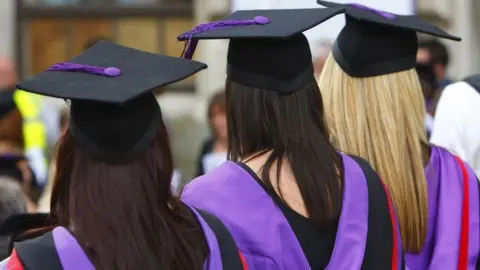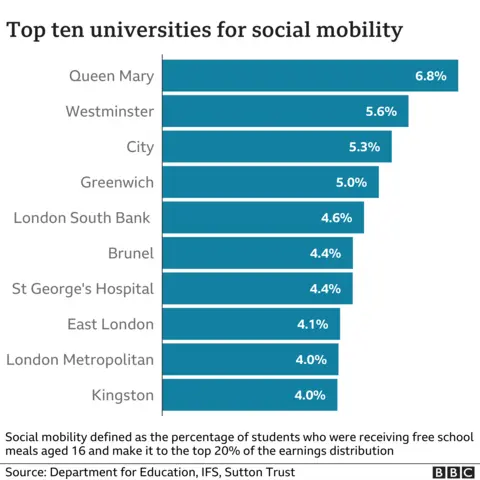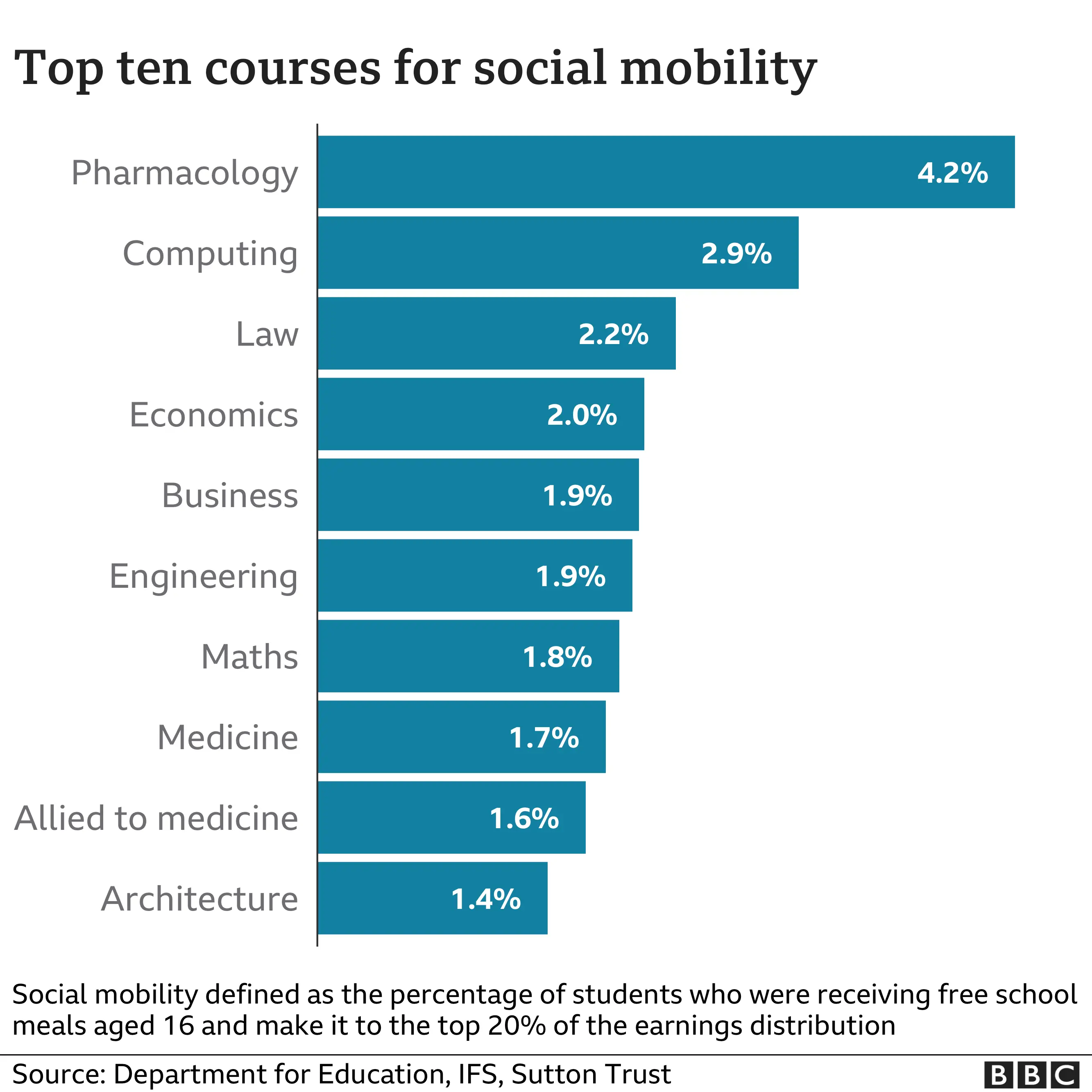Universities to get good job targets for poor students
 PA Media
PA MediaUniversities will have to hit hard targets to ensure the poorest students get into high-paid jobs after they graduate, under new government plans.
Universities Minister Michelle Donelan is telling vice-chancellors to rewrite their access and participation plans, which they produce every five years.
Those that miss their new targets will not be able to charge full fees.
It comes as a study shows selective universities do less well in helping poor students earn more.
The analysis - by the Institute of Fiscal Studies and the Sutton Trust education charity - compares how many pupils who were on free school meals attended each university, and went on to make it into the top 20% of earners at the age of 30.
Drop-out rates
It found newer universities with lower entry requirements help twice the rate of poor students (2%) to get top jobs later on, than the older, more selective institutions (1%).
The report suggests this is because they admit more students from poorer homes than universities with higher entry requirements, and can therefore help more disadvantaged students move into good jobs.
Although less prestigious than the highly selective Russell Group of 24 institutions, these modern post-1992 universities are still turning large numbers of students into top earners.
While students from low-income families who go to Russell Group institutions do very well in the labour market, these universities admit very few students who have been on free school meals in the past - this leads to what researchers call a lower "mobility rate".
Ms Donelan said: "We need to be making getting on as important as getting in. Gone will be the days where universities were recruiting students onto courses that lead to dropping out, frustration and unemployment.

"A student's outcome after university needs to be as important to providers as a student's grades before university."
In 2017, the public accounts committee suggested the system of loans and fees had left many students with debts, and doubting their degree was "worth the money paid for it".
Working with schools
The shake-up is being announced as John Blake, a strategic director for academy chain Ark, is appointed The Office For Students' director of fair access and participation.
Agreeing these new participation targets with universities will be his first task. It is expected they will be in place for September 2023.
Currently, all universities have targets for the proportion of disadvantaged students they must admit.
These are tied into their Access and Participation plans, which are approved by the Office for Students every four years, in return for the ability to charge maximum fees of £9,250 a year.
Ms Donelan is now asking institutions to do more than increase the number of undergraduates from poor backgrounds.
They will be required to ensure these students study courses which deliver good outcomes for them, although there is little detail on this.
But the Department for Education says this means tackling drop-out rates, and supporting poorer students through university to graduation, and into high-skilled, high-paid jobs.
Tutoring
Currently, about one in 10 students from the poorest backgrounds drop out in their first year.
Universities will also be required to work more closely with schools and colleges, so that a broader range of students get better qualifications and have more options to choose from.
Measures could include running a summer school or offering students and lecturers to tutor pupils, the DfE said.
And universities will have to offer more courses linked to skills and flexible learning such as degree apprenticeships, higher technical qualifications and part-time courses.
Dr Tim Bradshaw, chief executive of the Russell Group, said the proportion of disadvantaged 18-year-olds joining its universities had increased every year for the last seven.
He added: "Our universities look forward to building on their existing work with schools and colleges, offering a range of options to young people, including degree apprenticeships, and supporting them through university to graduation and beyond."

